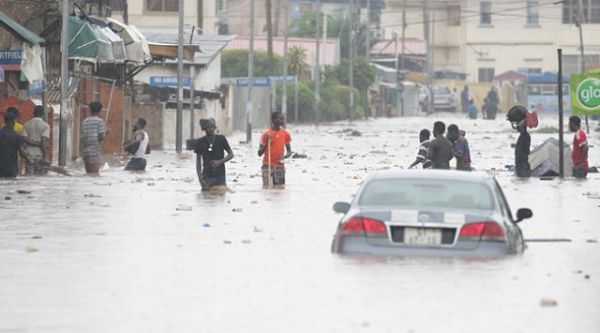
No Time for Delays: Future Hope International (FHI) Calls on Closing the Climate Finance Gap
Thursday May, 23 2024

As world leaders are descending to Baku for COP29, Future Hope International (FHI) is urging developed countries and high emitters to scale up their funding commitments and provide a public finance provision goal of $1 trillion per year to support developing countries’ loss and damage and adaptation efforts and prevent global warming escalating beyond control.
FHI calls for a substantial New Collective Quantified Goal (NCQG) to support developing countries, which bear the brunt of climate change-induced disasters, to cover adaptation, loss and damage and mitigation, and ensure inclusive and just transition pathways. The new goal must include a loss and damage sub-goal to address irreversible impacts that go beyond what can be mitigated or adapted to.
Climate records are tumbling like dominoes. 2024 was the hottest on record, breaking the ceiling of 2023: extreme heat smothered multiple continents and ocean temperature rose to alarming highs, triggering devastating storms and spurring dire warnings about the impacts of climate change. Extreme weather events are increasing in frequency and severity, claiming lives, destroying houses and infrastructure, and bringing the economies of affected communities to their knees
The operationalization of the Loss and Damage Fund at COP28 in Dubai marked a breakthrough and a landmark in climate justice. Yet, the pledges first, and the contributions afterwards, have been paltry: without a serious commitment from developed countries, the Fund risks to remain an empty shell.
John Incoom, CEO, FHI
“The cost of climate inaction is higher than the cost of climate action. Parties must reset the balance and increase the funding for adaptation, and loss and damage, with strict interim targets. NCQG negotiations must agree upon a fit-for-purpose, needs- and rights-based climate finance goal to close the climate finance gap, with grants replacing loans to break the cycle of debt and unlock true potential for sustainable development. It is critical Parties agree on an inclusive climate action that empowers women and girls putting them at the forefront of decision-making processes.”
Dr S. Baidoo Asuming Board member and Senior Climate Advisor at FHI
The cost of climate inaction is higher than the cost of climate action. Parties must reset the balance and increase the funding for adaptation, and loss and damage, with strict interim targets. NCQG negotiations must agree upon a fit-for-purpose, needs- and rights-based climate finance goal to close the climate finance gap, with grants replacing loans to break the cycle of debt and unlock true potential for sustainable development. It is critical Parties agree on an inclusive climate action that empowers women and girls putting them at the forefront of decision-making processes.”
For media queries or to organise a media interview contact Eric Boakye, Media Relations Manager, Future Hope International (FHI), at ericboakye@futurehopegh.org

Want to hear more from us?
Find out how we’re changing the lives of vulnerable people and promoting environmental sustainability.
This email newsletter is administered based on our privacy policy, which tells you more about how we use your information. You can unsubscribe at any time. Over 18s only.
© 2023- Future Hope International (FHI). All Rights Reserved
P. O. Box 44 Kpetoe, Volta Region, Ghana
No. AGO/D/01, American House
Email: futurehope2015@yahoo.com/futurehopegh@gmail.com
Tel: +233244647951/+233200 662592
